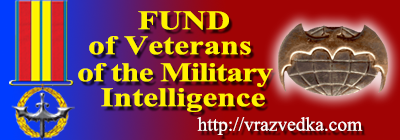May 29 leaders of Belarus, Kazakhstan and Russia signed an agreement on the establishment of a long-awaited for Putin Eurasian Economic Union (EaEU).
Even the Kremlin's propagandists have already forgotten about this not information reason. One and only reason is joining the “tested allies” (Director of the Belarusian oil refining “money washer” A. Lukashenko and N. Nazarbayev, who for decades has been dreading his overthrowing by Moscow proteges) by dwarf partners, namely, by the Presidents of Armenia and Kyrgyzstan, has brought nearer V. Putin and the multi-million army of his marginalized supporters’ of the “new USSR” by only a few hundredths of a millimeter. Because there was not and there will not be Ukraine there.
Besides, due to the prevalence in the EaEU of political goals, the union risks to turn into another stillborn analogue of the “Union State of Russia and Belarus” or CIS.
After the annexation of the Crimea (which most likely has become an unexpected bonus for the Russian leader), Vladimir Putin has finally managed through numerous concessions to the appetites of the Belarusian and Kazakh leaders to reach at least on paper a long-sought goal of his imperial course - economic institutionalization of “fraternal friendship” of the three peoples as a prerequisite for the recovery of post-Soviet superpower. According to experts of one of analytical centers in Moscow, Putin is stepping up the number of his “geopolitical victories”, allowing him to mobilize pro-government sentiments around his person and to reinvigorate the repressive policies within the country: according to the Russian Public Opinion Research Center’s (VCIOM) latest information, for the first time since 2003 the greatest support among respondents - Russians has got the idea of restoring the status of the “super-state -USSR”.
The presidents of Russia, Belarus and Kazakhstan Vladimir Putin, Alexandr Lukashenko and Nursultan Nazarbayev in Astana signed an agreement on establishment of the Eurasian Economic Union (EaEU) which will start working from January 1, 2015. In autumn 2013, Putin declared that an agreement on the Eurasian Economic Union must reflect the new quality of integration of member countries as compared with the existing Customs Union
http://www.pravda.ru/news/
But what should the world, Europe, Asia, neighboring states, “brotherly nations” expect from the EAEU?
1. Despite the RF's President's sweet promises about the attractiveness of the Center for Economic Development and Investments, mentioning the 170 million regional market, part of the world's gas reserves and 15 % of oil, as well as transit and logistical advantages of the EaEU, foreign partners have already seen how Moscow “can” comply with the rules of WTO, of the Third Energy Package and other international regulatory systems, of multi-and bilateral agreements, blackmailing with energy, political and military demands.
2. In 2015 will only begin to get formed a single market for services. All agreements needed for the normal functioning of the Eurasian Economic Union, will come into force only in 2025. In other words, until then Putin will have a wide field for “innovations”, unless within a decade the Russian, Belarusian and Kazakh people change the location of the Kremlin, Minsk and Astana's centenarians.
By 2025, Russia, Kazakhstan and Belarus promise to introduce Altyn - a new single currency. As you know, the idea of the single currency belongs to Kazakhstan's President Nursultan Nazarbayev, in 2012 it was supported by Vladimir Putin and Dmitry Medvedev. In Russia three copecks used to be called Altyn, and in Kazakh Altyn means gold
http://nnm.me/
3. A serious indicator of progress towards economic integration would be introduction of the single currency. Disastrous experience of creating “a unified state of Russia and Belarus” as well as Nursultan Nazarbayev's initiatives on the transition to the Euro's analogue “altyn” (2012), and the defined in the agreement benchmark for the signatory countries of the new union as a start functioning from 2025 (!) not of a single currency, but of a single mega-regulator for supervision and regulation of banking activities, testifies once again prospects and politicized format of the EaEU. Even one of the Ministers of the Eurasian Economic Commission (EEC) and the pro-Putin Deputy Director of the Institute of CIS countries has to admit that “the situation will not change earlier than the leaders are changed, so there are many more years ahead of expectations.”
4. Summing up indexes of trade of member countries of the Customs Union (the same RB, RK and Russia) have a negative trend: in 2012, the volume of their bilateral trade amounted to 68.6 billion US dollars, in 2013 - already 64.1 billion US dollars, the negative trend has been preserved and this year it fell in the first quarter to 1.8 billion US dollars (according to the official website of the EEC).
5. Advantages and benefits of the “equal partnership” with Moscow are distributed unevenly in the new union. Thus, Russia has to increase the “price of friendship with Lukashenko” at least by 5 billion US dollars annually. From “mutually profiting” trade benefit Belarus and Kazakhstan, sending respectively half and about 20 % of their foreign trade to the market of the Customs Union. Unlikely that such trading rules will help create conditions for the formation of a free trade zone stretching from Lisbon to Vladivostok or for the restoration of the Great Silk Road needed by China.
6. The only true achievement of Putin's “breakthrough in Astana” may be perhaps the application for the international juridical personality of the EaEU as an international economic organization - representative of the countries controlled by Russia, with which global and regional players and individual states will enter into a relationship.
Armenia intends to have joined the Agreement on the establishment of the Eurasian Economic Union by June 15, said President of the country Serzh Sargsyan at the enlarged meeting of the Supreme Eurasian Economic Council
http://ria.ru/
7. Armenia's declared intentions to join the EaEU (the President of which Sargsyan which, apart from economic donation, through membership in this organization expects a certain legitimizing of the occupation of Nagornyi–Karabakh) may adversely affect the relations of member countries of the EaEU with such a global energy and important regional player as Azerbaijan. I. Aliyev's formal appeal on this issue to the three signatories is worth much.
8. A real threat to the world's democracies is not the union of a number of countries in the economic bloc and further prospects of its expansion, but the specific association of authoritarian regimes on the basis of imperial, expansionist ideology of “Eurasianism”, which is guided by the main integrator of the former Soviet Union's space. Confirmation of the danger of its introduction into interstate relations is V. Putin's “ever-growing appetite” in annexations of someone else' territories and “insanity” of the committed and planned violations of international law on the part of Belarusian, Kazakh and other leaders-allies.





